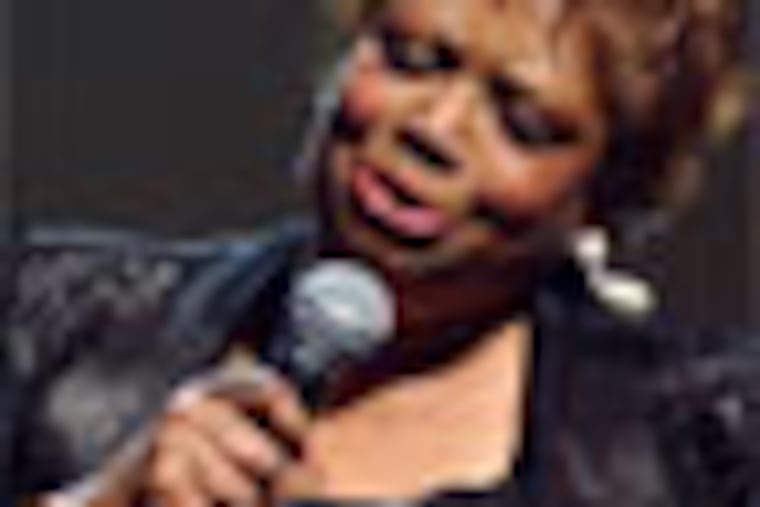
There are two works that illustrate the range of Fontella Bass' singing power.
One is a gut-busting soul cry, "Rescue Me," an R&B banger from 1965 that became Bass' signature.
The other, equally vital, is a nine-minute thrill ride, "Theme de Yoyo," that drives funk and boundary-busting jazz through one instrumental climax after another on the 1970 album Les Stances a Sophie from the Art Ensemble of Chicago.
Any appreciation of Bass, who died at 72 in her hometown of St. Louis on Wednesday, must acknowledge these two pieces of music.
Bass never achieved the fame that fellow belter Aretha Franklin did, but she charted an arguably more fascinating course through her musical life. Her stubborn vocal insistence in her early soul hits - "Rescue Me," "Leave It in the Hands of Love," and "Our Day Will Come" - was mirrored by her artistic temperament. She chose aesthetic expansion over chart success at nearly every turn.
That independent spirit can be seen in the musicians with whom she chose to collaborate, including the Art Ensemble, a free-jazz collective that featured her then-husband, the trumpeter Lester Bowie; the World Saxophone Quartet and David Murray in the 1970s and 1980s; and the Cinematic Orchestra in the 2000s.
Her early 1970s solo gem, "Free," harnessed the power of the funk and soul music of Sly and the Family Stone, the Staple Singers, and James Brown, and although that album wasn't a hit, it's one of the overlooked pleasures of the era.
Bass was musical royalty in St. Louis, a city whose essential soul tradition is often overshadowed by neighbors Memphis to the south and Chicago to the north. Along with East St. Louis, Ill., across the Mississippi River, the city had a vital R&B and jazz scene that spawned artists such as Miles Davis, Ike and Tina Turner, Chuck Berry, Ann Peebles, Oliver Sain, and Julius Hemphill.
Like fellow St. Louisian Josephine Baker in the '20s, Bass relocated to Paris, where in the '70s opportunities for American jazz and soul musicians were often more bankable than in America. The essential document of that period is "Theme de Yoyo," which, like the rest of Les Stances, was recorded for a French film of the same name and was used to score a scene in a French discotheque.
The ensemble specialized in brass-heavy breakdowns that showcased Bowie and sax players Joseph Jarman and Roscoe Mitchell, as well as bassist Malachi Favors and percussionist Don Moye's hard rhythms. "Yoyo" is vital evidence of its success.
Above a groove that suggests a collision between Ornette Coleman and James Brown, Bass describes a passion in Paris that's sweaty and messy: "Your head is like a Yoyo / Your neck is like the string / Your body's like a Camembert / Oozing from its skin."
The full-throated Bass delivers such couplets patiently over the course of the nine minutes, each offered amid a screeching soul-funk-jazz groove that occasionally collapses into a structureless mess like a plane in a tailspin, only to recover just in time.
It's an art that Bass perfected over her artistic life. Though she only occasionally released albums, in the mid-'90s she put out three acclaimed soul records that confirmed a powerful voice.
And when she teamed with the British jazz/EDM fusion group the Cinematic Orchestra for studio work in 2002, an enduring voice was introduced to a new generation.
Bass might have been considered a one-hit wonder in most of the world, but in her city she offered a model by which to mark a path. For her, "Rescue Me" was a ticket out, and she took full advantage.